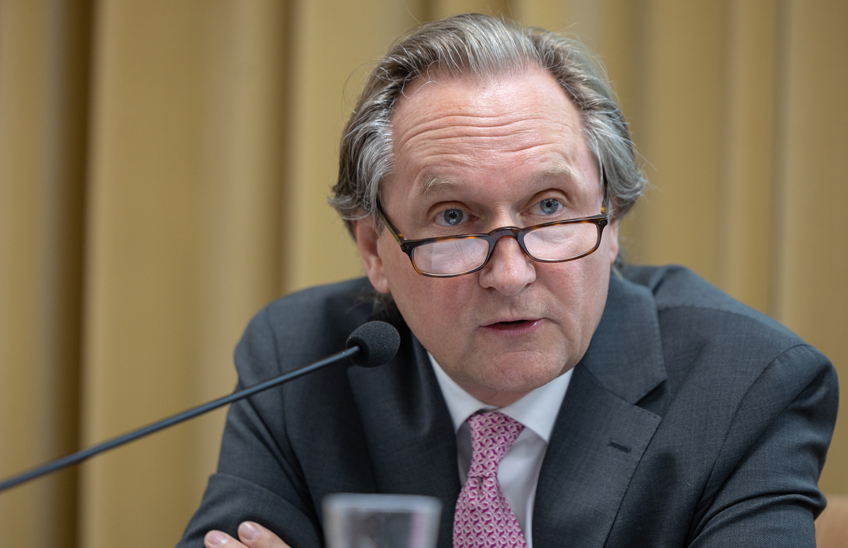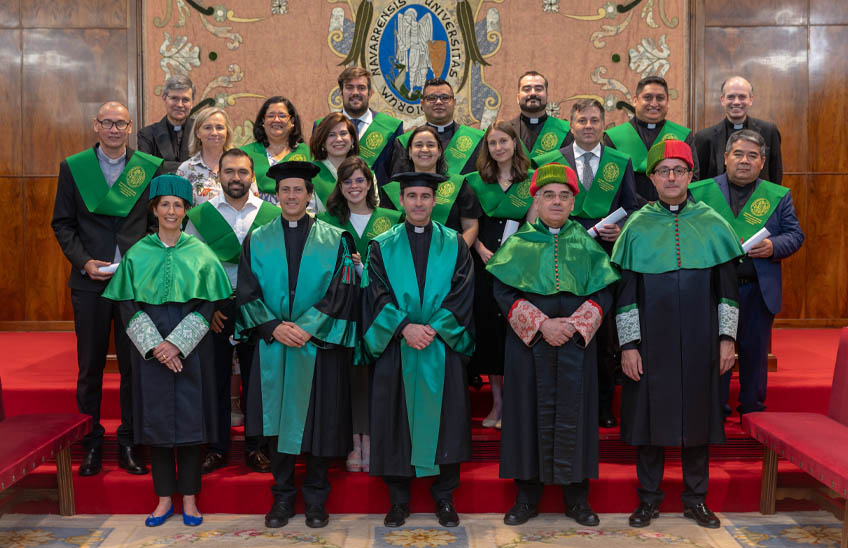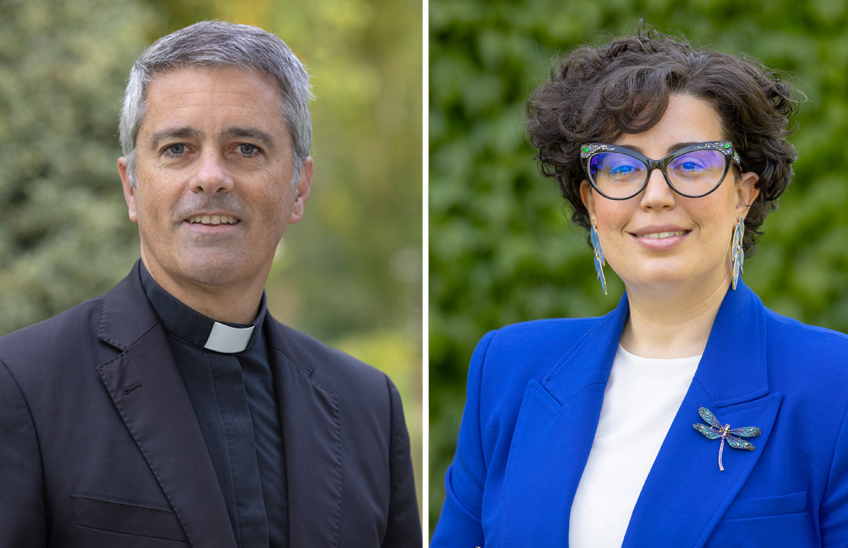"Most Catholics do not live in Europe and yet the history of Canon Law is still written as a European history."
Professor Thomas Duve, director of the department 'Historical Regimes of Normativity' of the Max Planck Institute for Legal History and Legal Theory of Frankfurt am Main, participated at the University of Navarra in the lecture of the patron saint Day of the School of Canon Law entitled ' Canon Law in the Early Modern Age and Global History'.

PhotoManuelCastells/Thomas Duve, Max Planck Institute for Legal History and Legal Theory, Frankfurt am Main.
03 | 02 | 2025
"Most Catholics do not live in Europe and yet the history of Canon Law is still written as a European history," said Professor Thomas Duve, director of theHistorical Regimes of Normativity department at the Max Planck Institute for Legal History and Legal Theory in Frankfurt am Main, on the occasion of his participation in the School of Canon Law's patron saint Day celebration at the University of Navarra.
Entitled ' Canon Law in the Early Modern Age and Global History', it was attended by about a hundred people. In his exhibition he explained that in the early modern period Canon Law had to face the great challenge of how to guarantee unity due to the threat of many forces: the reforms in Europe, the rise of the new modern states, the revolution of the means of communication, especially the massive use of the printing press that gave rise to a multiplication of information, which added to the insecurities about the veracity of the texts, and with these about the authenticity of the Law.
"But above all it was the European expansion, and what is called the first globalization carried out by Spain and Portugal, when the Church expanded its evangelizing mission statement to all the continents of the world," he said. In this sense, throughout his discussion paper he raised some questions: how did Canon Law react to this globalization, what can our global history say about the history of Canon Law contribute to this globalization? And what can the history of Canon Law contribute to global history?
A look at history for a better understanding of Canon Law
He recalled that the historiography of Canon Law is characterized by the paradigm of classical Canon Law , which prevents us from appreciating the richness of other periods such as the Tridentine Canon Law . He also said that the history of Canon Law, in global perspectives, can help us to better understand Canon Law. To exemplify this, he said that "much is said about the history of Canon Law in Europe, but very little about the history in the rest of the world. Brazil, Mexico and the Philippines, evangelized in the first globalization, are currently the countries with the largest Catholic population".
Before concluding, he summarized the consequences of a meeting between global history and the history of Canon Law and ended by affirming that "an opening towards the global dimension is necessary, looking at the current and future composition of Catholicism with the world" since it can help "for the dialogue between the history and the science of Canon Law in force".


